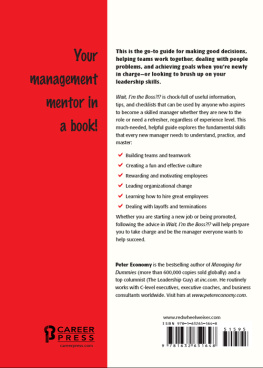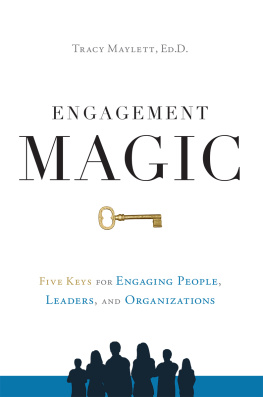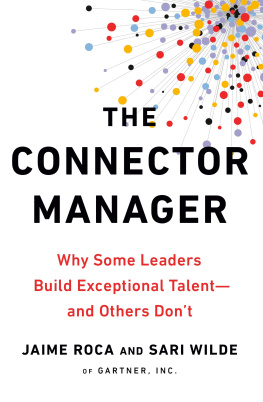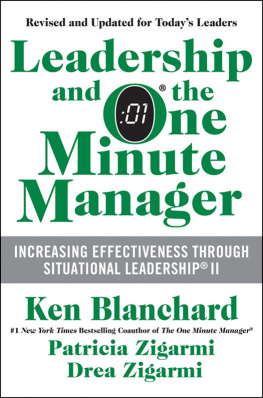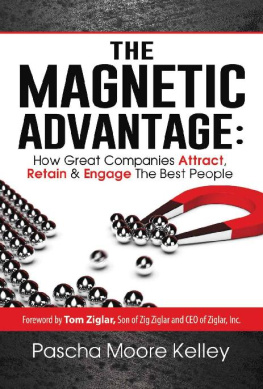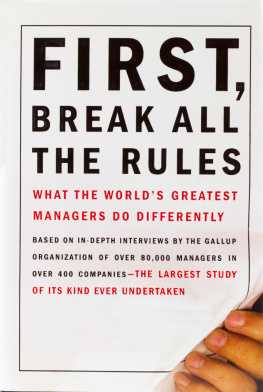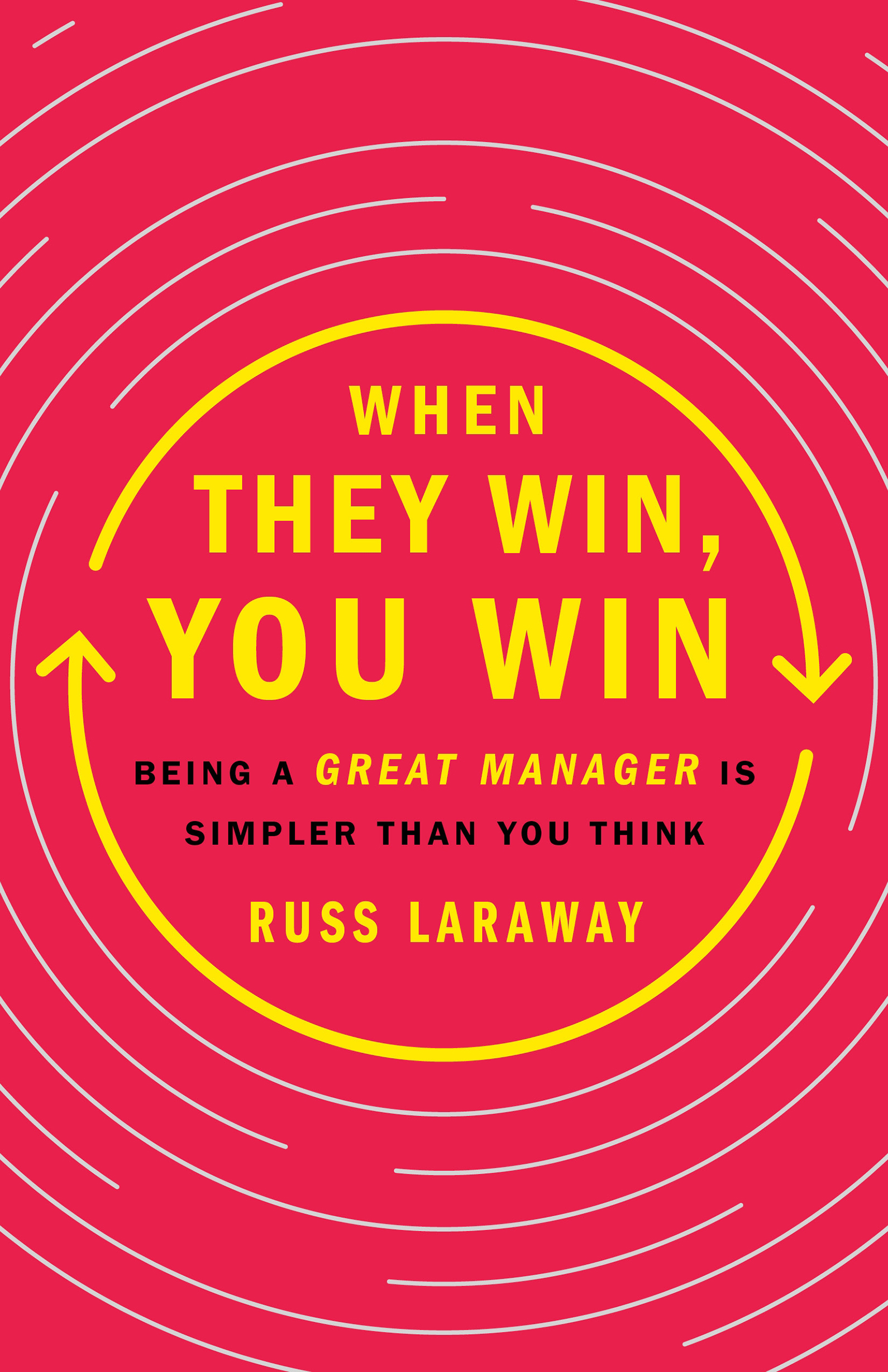Contents
Guide
Pagebreaks of the print version

The author and publisher have provided this e-book to you for your personal use only. You may not make this e-book publicly available in any way. Copyright infringement is against the law. If you believe the copy of this e-book you are reading infringes on the authors copyright, please notify the publisher at: us.macmillanusa.com/piracy.
To my world: Verlana, Anthony, Chas, and Starks
Managers are failing everywhere, and no one is helping. This is a big claim, but dont worry, I brought receipts.
Becoming a great manager takes hard work and constant practice, and even after you learn, practice, refine, and, heck, maybe even develop some expertise, youre still going to make big mistakes. Thats the bad news.
The good news is that you can become a better manager, no matter what kind of person you are. It doesnt matter if youre super introverted or naturally outgoing. People with those personality typesand all types in betweenjust have to put in the work, and more than that, the right kind of work. To become a great manager you only need to learn, develop, and practice a few behaviors. Unfortunately, the world has conspired to confuse the hell out of the average manager by offering some combination of bad advice, good advice that is difficult to apply, too much advice, confusing or conflicting advice, or no advice at all. The people who promoted you often leave you to sink or swim; the people who write management books sometimes know more about theory than practice.
This book is different. Its leadership approach is astoundingly simple. It is also proven: it predictably and measurably delivers happy, motivated employees and excellent business results. It focuses on three key elements of leadership, or the Big 3: Direction, Coaching, and Career. Here is a brief overview of each:
- DirectionGood managers ensure that every member of their team understands exactly what is expected and when it is expected.
- CoachingGood managers coach their people toward both short-and long-term success, helping them understand what they should continue to do and where and how they can improve.
- CareerGood managers invest in their peoples careers in a way that considers their long-term goals and aspirations beyond the four walls of the current company, and certainly beyond their next promotion.
Here are a couple examples of the difference this Big 3 leadership approachwhen used together and systematicallycan make. In 2011, Joe took over the Pittsburgh office of a Fortune 500 company. For years, Pittsburgh had been among the companys biggest dumpster fires. The offices culture was in shambles, and, predictably, sales were tanking. Once he arrived, Joe quickly recognized that there was solid talent on the teameven though some people needed a fresh start somewhere elseand so he set about reshaping his team. While he did, he spent time with each member, both tenured and new, ensuring they knew exactly what was expected of them in part by giving them a substantial voice in those expectations. Then he sat alongside them, day in and day out, and coached them to success. He further worked to understand every team members short- and long-term career goals and then helped them put specific plans in place to achieve them. Less than two years later, the Pittsburgh office achieved top results in sales revenue, operations, staffing, employee retention, and profitability. For the first time in this companys history, it won the Office of the Year award.
Daniela, a tech industry colleague of mine, was a midlevel manager at a major credit card company when she took over the leadership of one of its service groups. The group had an exceedingly and unsatisfactorily high cost per contact, one of its key business measurements, and its employee satisfactionone of a handful of measurements most companies use to understand employee engagementwas, at 55 percent, thirty points below the company average. Daniela quickly set up a series of listening sessions with one goal: to understand from the teams perspective what was wrong. Team members opened up to her quickly, recognizing their chance to change both the perception and the reality of their performance. After listening carefully and humbly to nearly all of them, Daniela had four key insights: (1) the team lacked the technological tools required to do their jobs effectively and efficiently; (2) the company had an inconsistent system for rewards and recognition; (3) they had a culture that lacked clarity on exactly what the measurable expectations were for each team; and (4) there was a lack of transparency around career progression. She appointed four working groups, one for each area, to go deep on the nature of the problem. Daniela quickly implemented several of the solutions they proposed, and within one year her division cut their cost per contact from three dollars to one dollar and raised their employee satisfaction score from 55 percent to 85 percent.
As tempting as it is to focus on where to lay the blame for a failing team, its much more fruitful to zero in on what it takes to turn one around. It takes leaders like Daniela and Joe to come in and clarify what success looks like for each person, understand not only their strengths and weaknesses but also their hopes and dreams, and then work to enable each of them to find success. Legendary San Francisco 49ers head coach Bill Walsh summed it up nicely in his book, The Score Takes Care of Itself. He said that even with the best talent in the world, you cannot guarantee success, and that an excellent leader seeks to increase the probability of success by intelligently and ruthlessly pursuing solutions to the teams problems. Focus on managing your teams using the Big 3, and problems such as low pride, an unwillingness to go the extra mile, poor employee retention, low enthusiasm, and missed targets will all take care of themselves.
THE ORIGIN OF THE THREE-PART LEADERSHIP STANDARD
In 2016 I left Twitter to cofound Candor, Inc. with Kim Scott. Candor was a software company that worked with companies to put the ideas in Kims bestselling book, Radical Candor, into practice. During my time there, I personally interacted with somewhere in the neighborhood of one thousand companies. When they called, I was usually the first person they talked to, and I generally started our conversations with a simple discovery question: What problem are you trying to solve?
Their answers were shockingly similar across industries, company sizes, and geographies. Some companies had some evidence and others just a feel, but the problem they were wrestling with nearly always came down to this: We have an employee engagement problem related to low manager skill. Of course, the most natural follow-up question was, Well, can you tell me about the nature of that skill gap? As I listened to their answers, a common set of themes began to emerge, and the problem started to feel more addressable. I ended up working directly with hundreds of these companies and sending advice via phone, email, Twitter, etc., to hundreds more. Through that process, I discovered the handful of simple practices that great managers do routinely and that less-great managersthe vast majority of usdont.
What I learned from working with these companies fit my intuition, which made sense because most of the things I learned listening to these companies also happened to have worked for me over twenty-eight years of leading successful teams. It starts with a simple and obvious idea: the only thing that we all have in common at work is that we want to be successful. It seems reasonable, then, that the best managers help each person understand what is expected of them and then help each person find success. Ive been a manager since day one of my career. I started as an officer in the US Marines, leading a 40-person infantry platoon, and rose to company commander, responsible for 175 combat Marines. Since then, Ive been in a few small companiesPathfinders, FreeMonee, and Candor, Inc.and a few bellwether tech companies, including Google, Twitter, and Qualtrics. I received an MBA along the way from the Wharton School of Business at the University of Pennsylvania.


